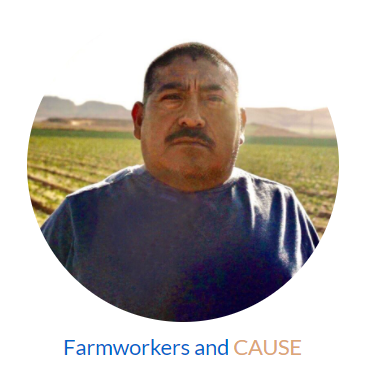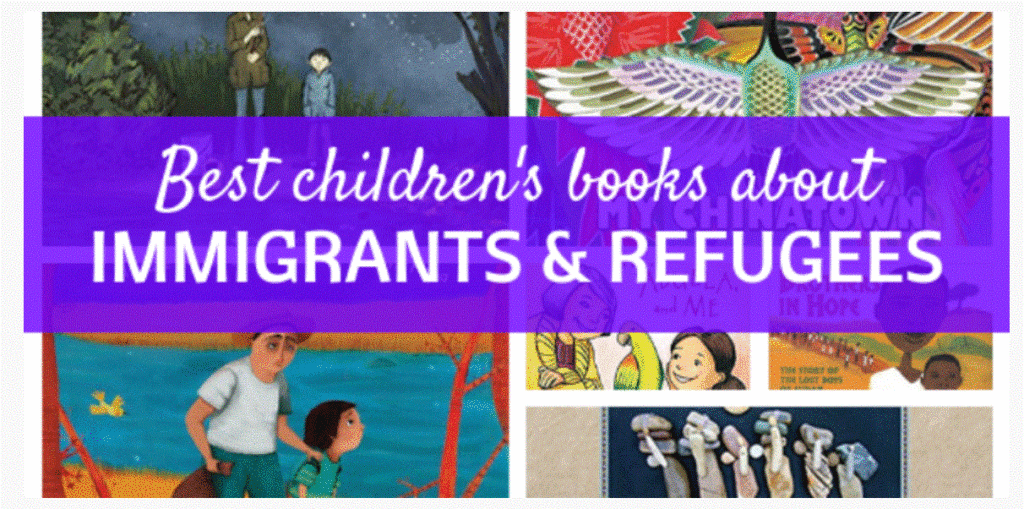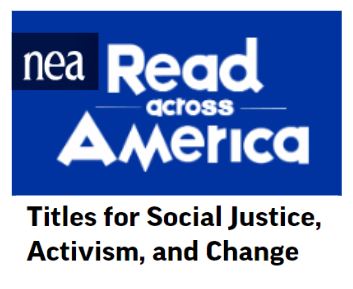Watch short videos about current campaigns for immigrant worker rights
Multimedia case studies of workers taking action for better working conditions during the pandemic, featuring videos of farmworkers, fast food workers, retail workers, food processing workers, and restaurant workers organizing. Great resource to highlight the current immigrant worker rights movement, created with the UC Berkeley Labor Occupational Health Program.
Hear a read aloud, use a lesson plan, find other great books
Hear from immigrant/labor right advocates
About the issues in this book
Historically, people from all over the world have come to the United States for many reasons. European settlers came looking for religious freedom and a chance for a better quality of life. In the process, they pushed out the indigenous people living here out of their homes and killed many others. Africans were kidnapped and brought here to work as slaves. People from many countries came to do crucial work that has built up the economy of this country. Many others have come fleeing war, poverty, natural disasters, and unfair treatment. In some cases, the United States has been directly or indirectly responsible for the conditions that caused people to flee their homes. For example, the U.S. government has funded and supported violent governments and set up trade agreements that contribute to poverty in other countries.
Immigrants still do many important and tough jobs, but often they don’t get paid enough to meet their basic needs and face conditions that put at risk their safety and health. They are often threatened that if they speak up, they will lose their job or be deported (sent to the country where they were born against their will), no matter how much they have contributed to this country. In spite of this, immigrant workers have fought for fair working conditions and have made big changes.
Some immigrant children grow up as members of this country, but face limitations for being undocumented (not having the right papers to give them permission to live here). There are many things undocumented people can’t do, including voting, getting a driver’s license, and getting a loan or scholarship to pay for college. They live in constant fear that their families will be separated, and that they will lose everything they have worked for. Many young people who were brought here as children have joined together and organized to demand fair treatment. This could include a chance to get the papers they need to study, work, vote, and live in the country they call home without fear of being deported. In recent years, children coming to the United States have been separated from their relatives by U.S. immigration officials and put in separate detention facilities, making it hard for families to reunite. Both children and adults are being detained indefinitely in unsafe conditions, often in ways that harm them and violate their rights. If Flor and her father had come to the U.S. in the past four years, they may have been separated from each other and this would have been a different story.
Many people welcome immigrants who are their neighbors, teachers, friends, caretakers, grandparents, and life partners. Most people want to fix our unfair immigration system. This could mean making sure those who come here can do so safely and with permission, giving those without documents a chance to get them, and making sure that all people who live here have basic rights. It could also include making sure those who come are treated fairly and are in safe conditions until it is determined whether they can stay. Some people feel threatened by immigrants because they seem different or because they fear immigrants will commit crimes or take others´ jobs, even though the evidence does not support this. In every generation, there has been fear about new immigrants. Often, the children and grandchildren of immigrants worry about new immigrants coming in, even though most immigrants are an integral part of our culture, economy, and society.
Many decisions will be made regarding the rights of immigrants in this country. Undocumented people are not allowed to vote, so citizens have a big role to play in making these decisions. However, the courageous actions of people like the characters of Flor and her father have convinced many voters that immigrants deserve to be respected, appreciated, recognized, and given the same opportunities as those born here. Also, many believe that immigrants are what make this country uniquely rich in its culture, vibrant in its growth, and alive with people who dream and build.
Discussion questions for the book
- Flor and her dad decide to go to For All because there are no jobs in their country. What are other reasons why immigrants leave their home?
- What are Flor’s expectations of life in For All? How does the reality differ from what she dreamed about?
- The dad did indeed find jobs in For All, but they were probably not what he had hoped for. Why?
- Ms. Soto plays an important role in the story. What does Flor learn from her?
- What is the role of writing and story-telling in this book?
- How does Flor try to convince people to vote for fairness for immigrants? What other arguments could she make?
- Flor feels that loving her new home means telling hard truths to help make it a better place. Do you think it’s patriotic to try to change things that seem unfair to you?
- Flor notices that stories of undocumented immigrants are not told from their point of view on TV (or other media). Why does this matter?
- The dad chose to remain quiet and obey the instructions on the papers (until he decided to speak up at the very end). Why do you think he made that choice?
- The X on the papers in this story stand for a kind of “deal” that’s made with immigrants—on the one hand they are needed to work and they make great contributions to For All. In this sense, they are members or “citizens.” On the other hand, they do not have the right papers or permission to be here. How could this be solved?
- Flor found a group of people who also wanted to make change. What is the advantage of taking action with others?
- The green pen represents your voice to tell stories and advocate for justice. What do you want to do with your green pen?






